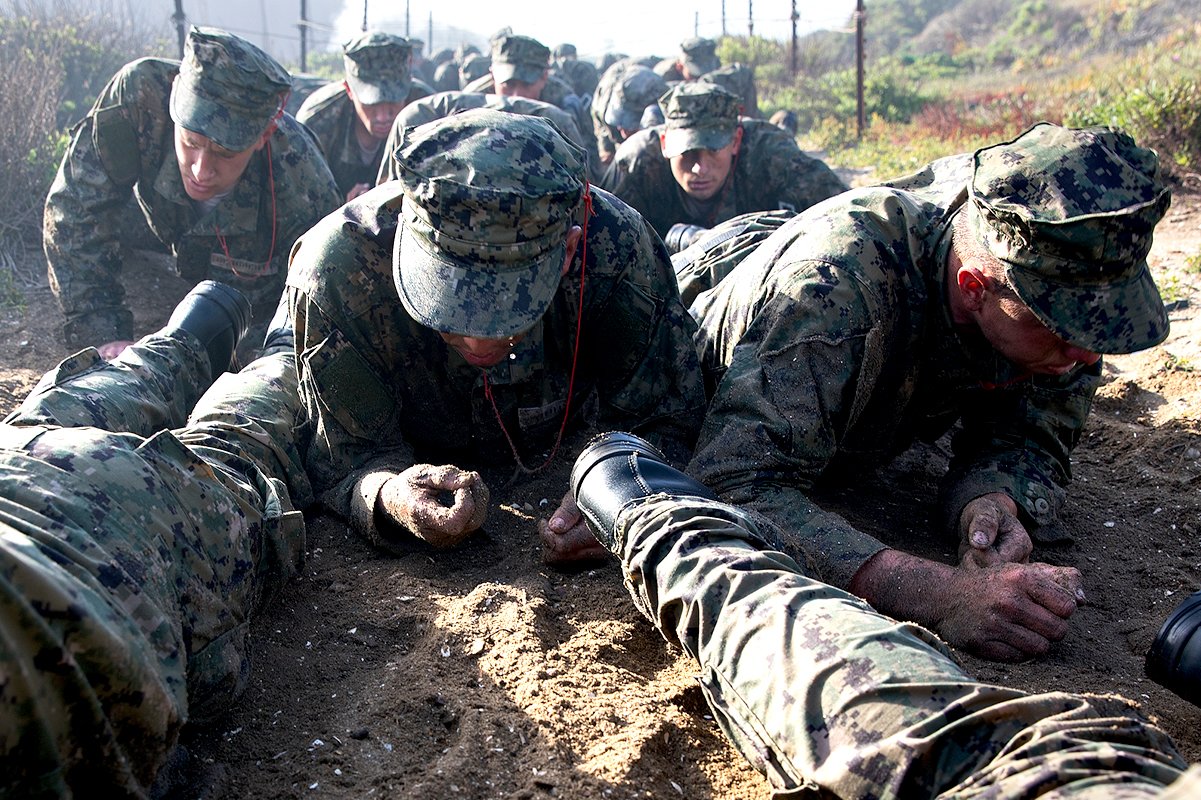
SEAL candidates crawl through the mud during Hell Week. US Navy photo by Petty Officer 1st Class Abe McNatt.
Service in the United States military can look very different from person to person. Some of us join and have fast-paced, intense careers, while others join the Air Force. Some battle through a full 20 years and retire, while others serve a short enlistment and then spend 20 years battling the VA for benefits.
It’s a flip of a coin how your military career will go, but regardless of the path you take, you’re bound to learn a few things the hard way. Regardless of branch, job, or time in service, everyone who serves in the United States military learns some of the same tough lessons. Here are six hard lessons the military taught you.
If You’re Good at Your Job, You’ll Be Doing All the Work
No good deed goes unpunished, and in the military, if you’re good at your job, you’re going to get punished with more work. Many of you already know exactly what we’re talking about. If you have no idea what we are talking about, congratulations: You sucked at your job. It’s an unfortunate reality that veterans understand all too well — the stronger your back, the more you’re going to have to carry.
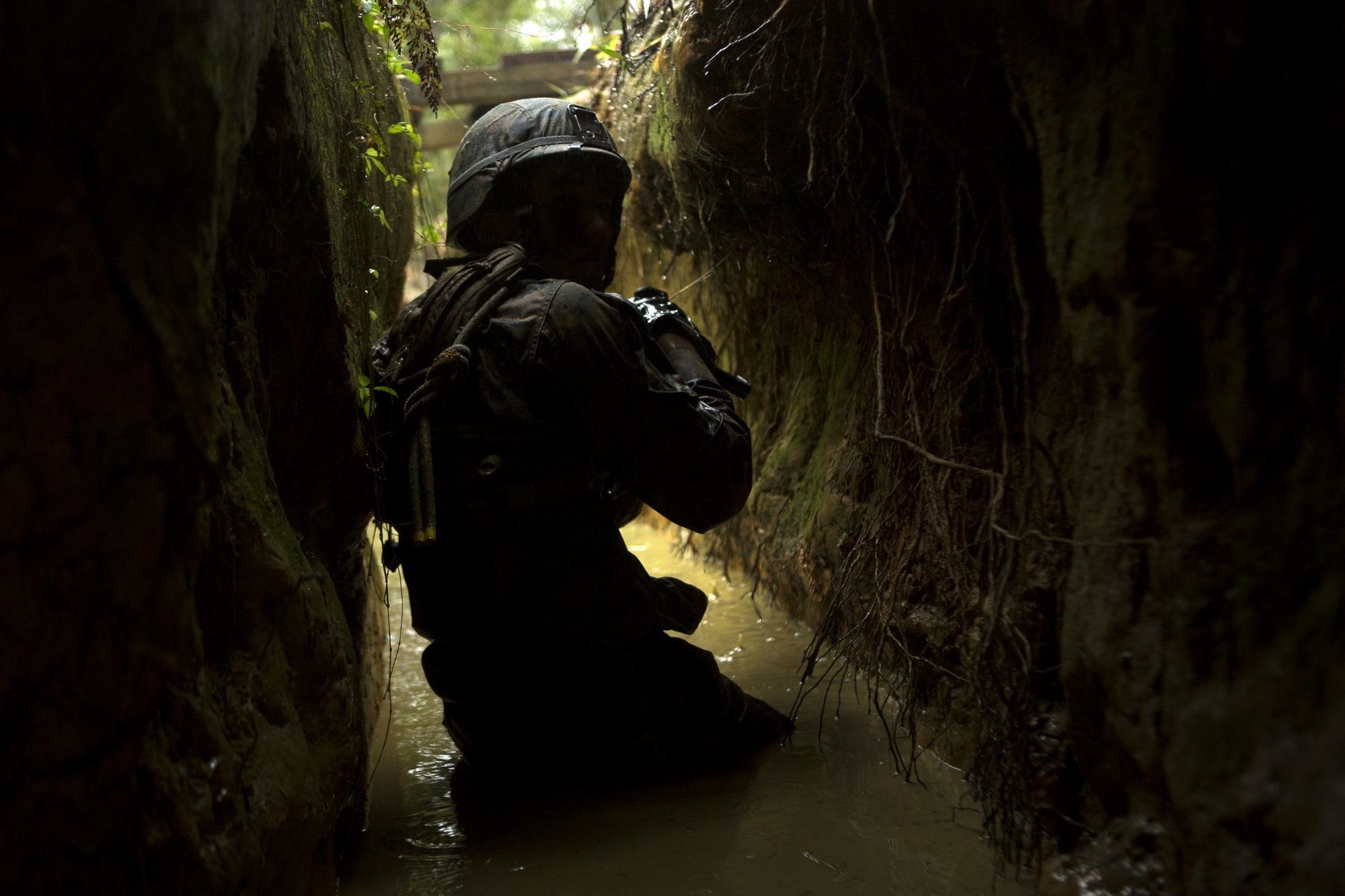
Knowing When To Shut the Fuck Up
Clear and concise communication is critical to success in any military operation. Knowing when to shut the fuck up is critical to success in your personal day-to-day operations. This is a lesson that the military tends to teach us the hard way.
Think back to a time in your military career in which you lost your cool. If you didn’t, that’s amazing — tell us more about the Coast Guard later, but let’s stay on task. At some point in your career, you likely told your platoon sergeant exactly what you thought of him or were a little too vocal about how you don’t give a flying fuck about the commander’s intent, and it cost you dearly.
As you sat cutting grass with a pair of scissors, you likely realized that all the heartache you were going through could have been avoided had you just shut the fuck up. A hard but valuable lesson that you no doubt forgot and relearned just a few months later.
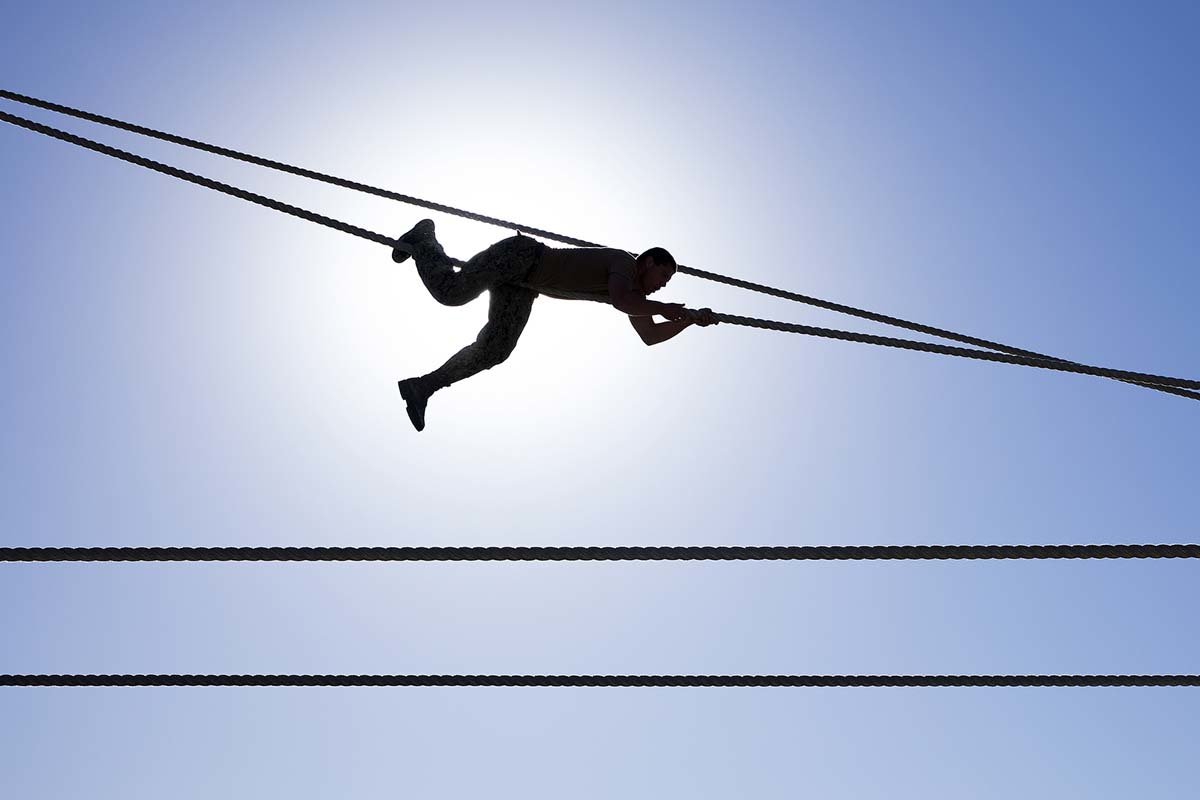
There’s Romance, and Then There’s Reality
You likely walked into your recruiter’s office with romantic ideas of what your military career would look like. No doubt you imagined your career would play out like an Arnold Schwarzenegger movie, which it did, but instead of Commando, you likely ended up with something more akin to Kindergarten Cop.
The romantic idea of military service is that it’s all action, all the time. The reality is that it’s all action for a very small amount of the time, and the majority of your time will be spent on other tasks, like ensuring grown-ass men shaved that morning, or watching PowerPoints. Military service has taught us vets that much of life mirrors this and to temper our expectations. There’s a romantic idea of what something is, and then there’s the reality of what it is.
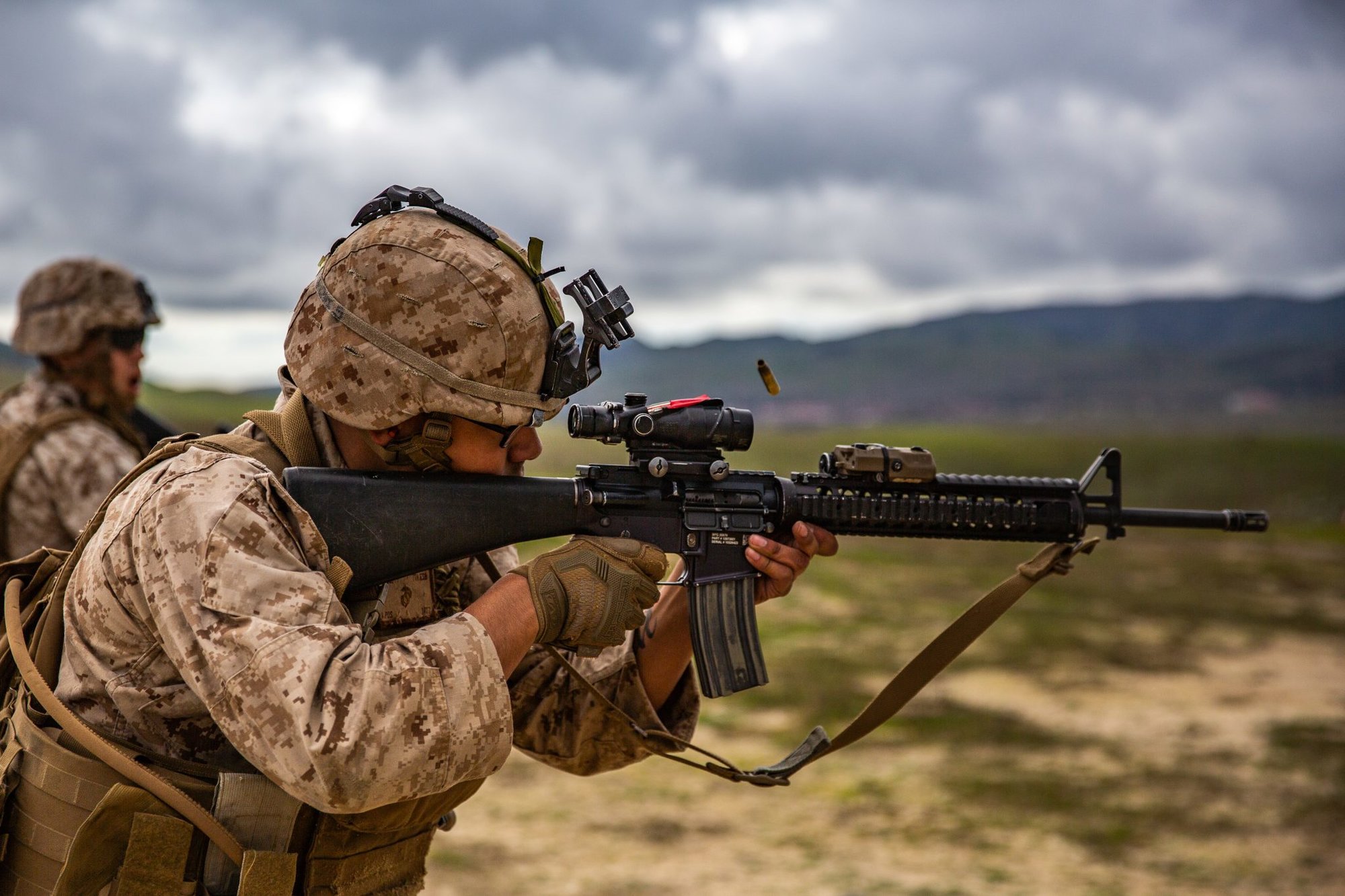
No One Gives a Shit About Your Excuses
The United States military is an objective-based, get-shit-done environment. You have your role and are expected to perform and produce results, no matter what. Everyone in the military has a hard job. Everyone is battling uphill, working with less or in less-than-ideal conditions. Because of this, no one in the entirety of the United States military gives two flying fucks about your excuses. No one is having an easy time, so suck it up and get it done.
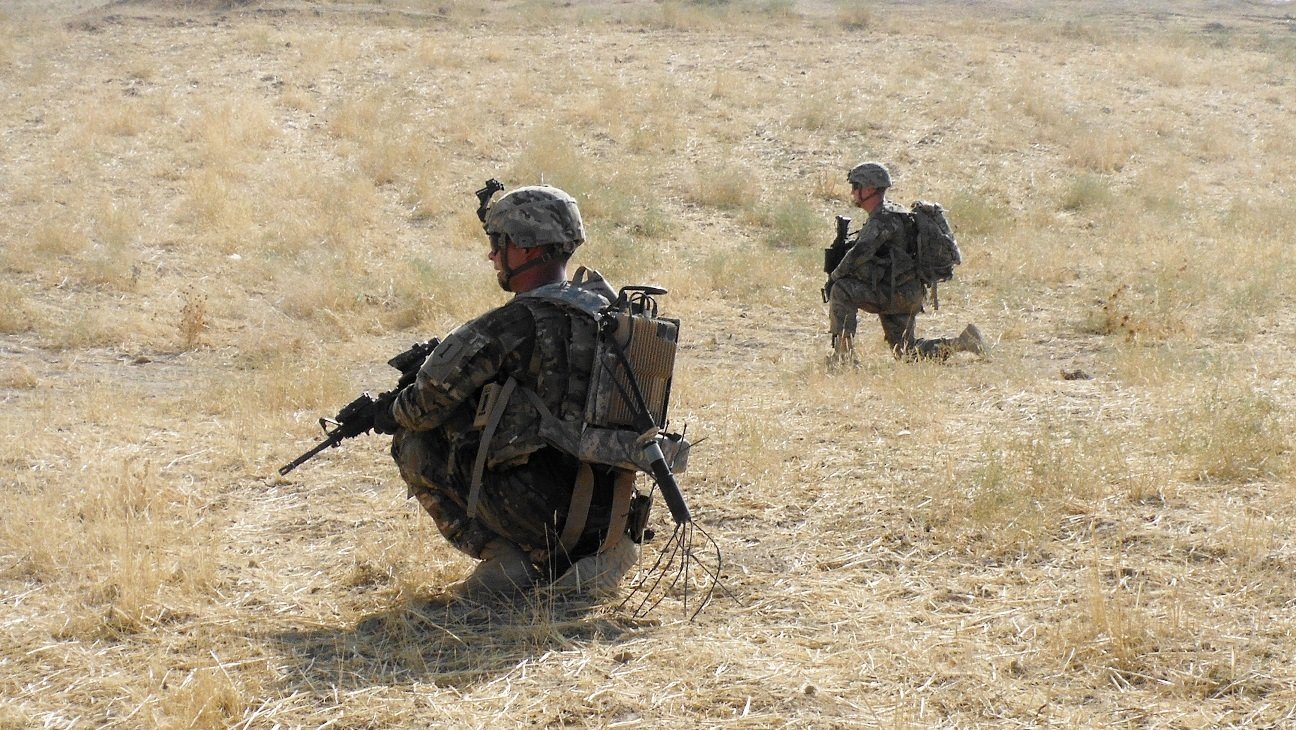
It’s Your Fault, and That’s a Good Thing
Former Navy SEAL commander and motivational speaker Jocko Willink regularly espouses the importance of extreme ownership, which is basically another way of saying, “Everything is my fault, and I’ve gotta fix it.” Willink most likely developed this concept after 20 years in the Navy of getting blamed for shit that wasn’t his fault, but we can’t say for certain.
If you learn anything during your time in service, you’ll learn these two things: Shit’s going to hit the fan, and no one is going to take responsibility for it. While it is frustrating, vets understand that people’s reluctance to take accountability for a mishap is often a good thing, as the types of people who avoid responsibility are often incapable of solving the problem in the first place. They’re dipshits. So when the dipshits dip out, vets know it’s one less problem they have to solve.
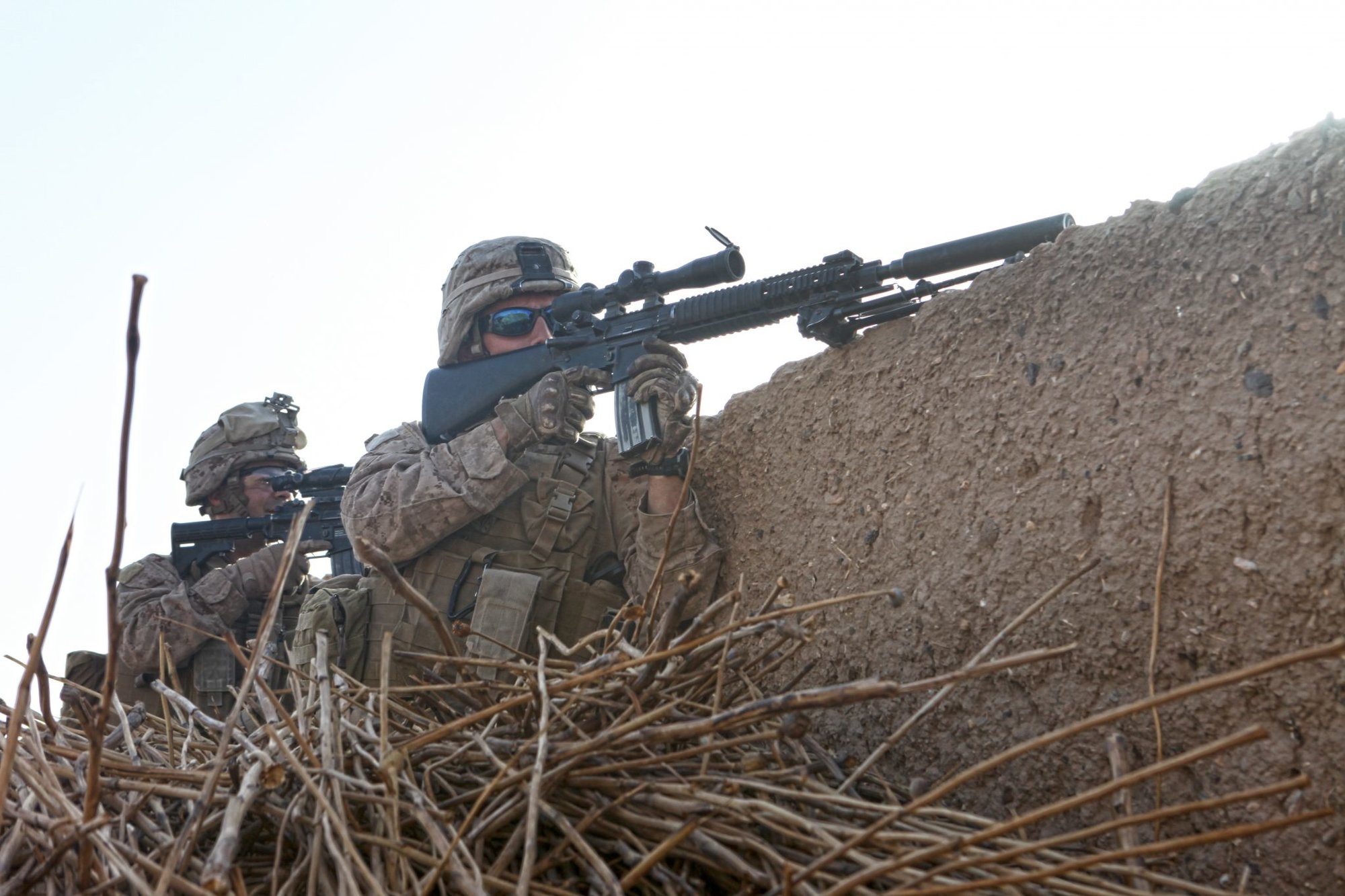
Life is Hard. It’s Harder if You’re a Wimp
Life’s hard. It’s way harder if you’re a dumb, lazy, out-of-shape asshole who spends his entire day scrolling through social media looking for something to get mad about. The military taught you the importance of physical health, maintenance, education, and overall improvement. The stronger you are, the more manageable a lot of your problems become.
If you never maintained your rifle, you wouldn’t be surprised to see it fail to function properly. You are no different. Life is hard, and the harder you are (not like that), the easier it will be for you to tackle obstacles. Don’t turn into a sniveling wimp who’s easily toppled by minor inconveniences. Stay strong, stay smart, stay healthy, and most importantly, don’t turn into a fucking wimp.
Read Next: Pink Floyd Teams Up With Ukrainian Rock Star To Release First Song in Decades

Eric Miller is a former Army Combat Medic from Parkersburg, West Virginia. He holds a bachelor’s degree in history and has worked with homeless populations and veteran services throughout the state. He is an avid outdoorsman and has recently become interested in woodworking.
BRCC and Bad Moon Print Press team up for an exclusive, limited-edition T-shirt design!
BRCC partners with Team Room Design for an exclusive T-shirt release!
Thirty Seconds Out has partnered with BRCC for an exclusive shirt design invoking the God of Winter.
Lucas O'Hara of Grizzly Forge has teamed up with BRCC for a badass, exclusive Shirt Club T-shirt design featuring his most popular knife and tiomahawk.
Coffee or Die sits down with one of the graphic designers behind Black Rifle Coffee's signature look and vibe.
Biden will award the Medal of Honor to a Vietnam War Army helicopter pilot who risked his life to save a reconnaissance team from almost certain death.
Ever wonder how much Jack Mandaville would f*ck sh*t up if he went back in time? The American Revolution didn't even see him coming.
A nearly 200-year-old West Point time capsule that at first appeared to yield little more than dust contains hidden treasure, the US Military Academy said.












